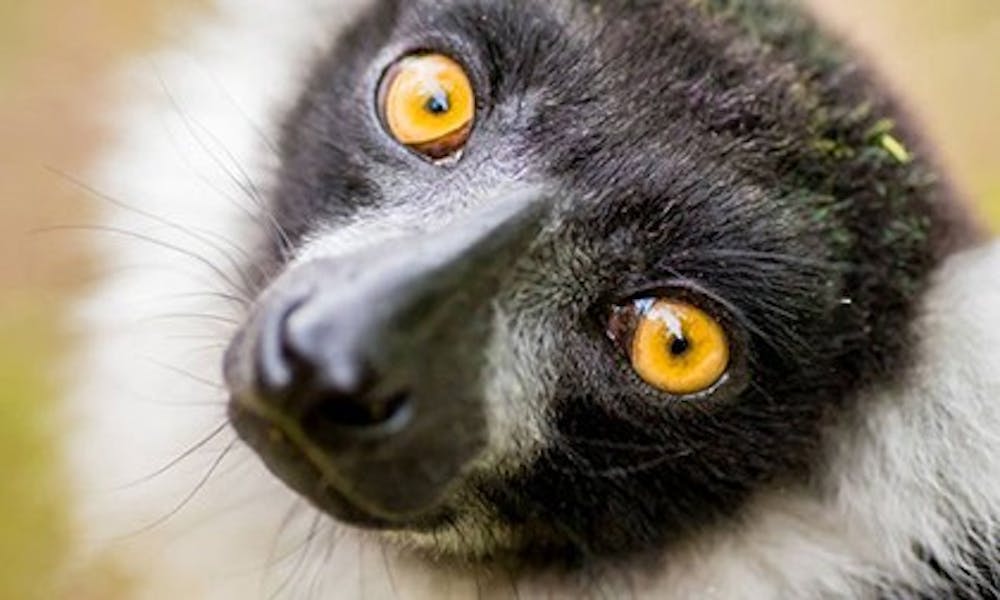For those looking for a new, interesting pet, Lemurpalooza is the place to be.
The Duke Lemur Center hosted its fifth annual Lemurpalooza fundraiser Saturday night during which families were able to visit some of the center's 250 lemurs and tour the facilities. Attendees also had the opportunity to “adopt” a lemur by paying for some of its care.
“We sell out every year. People come from all over,” said Chris Smith, communications manager and interim education program manager for the Lemur Center. “I met someone from California who came to visit friends this weekend because of Lemurpalooza.”
Smith said he estimated about 500 people attended the fundraiser and that they raised 50 dollars per car. In addition, the center raised money by allowing visitors to adopt lemurs at prices ranging from 50 dollars to 7,400 dollars—the average cost of taking care of a lemur for one year. Adopters receive photos of their lemur and regular updates on its life.
Visitors to the Lemur Center are usually required to schedule a guided tour in advance, but during Lemurpalooza, visitors could tour the center at their own pace.
“It’s one of the few times people can just kind of hang out,” said Charlie Welch, conservation coordinator for the center.
Lemurpalooza is primarily geared towards children and their families, with coloring, information tables and food trucks.
“I’m obsessed with lemurs so I like to come and do things at the Lemur Center,” said Rami Lynx, an 8-year-old who attended Lemurpalooza. “I think it’s really interesting how it can just jump from where they are to 30 feet away.”
Kiren Pell, an eleventh grade student and junior guide at the Lemur Center, said she has been working at the center for several years because of her mom—Leslie Digby, an associate professor of evolutionary anthropology at Duke.
“Everyone from little kids to their grandparents come here,” Pell said. “I like sharing what stuff I know with other people, and people who come here are interested in the things I have to teach them.”
Many of the lemurs at the Lemur Center are endangered, and some are critically endangered as a result of deforestation in Madagascar and the country's rapidly expanding population—nearly 23 million people as of 2013.
“Some of the lemurs we have here, like the blue-eyed black lemur, are actually critically endangered,” Digby said. “They’re truly at risk of extinction within our lifetime, so it’s something we want to be very careful with and support protecting them.”
Digby explained that because of her specialty in primate behavior, the Lemur Center contributed to her decision to come to Duke.
“There are a limited number of primate centers around the country, and to have one like this, which is noninvasive in the kind of research it does and an amazing number of critically endangered species, is a fantastic resource,” she said.
The Lemur Center's missions include research, conservation, animal care and education. Its $2.4 million annual operating budget comes from several sources—including National Science Foundation grants, the University, donations, tours, merchandise and endowments. However, the NSF funding program—called “Collections in Support of Biological Research”—was temporarily suspended in March.
Smith noted the importance of the broader Duke and Durham communities rallying behind the Lemur Center.
“The Lemur Center is very invested in our community,” Smith said. “It’s one thing that no other city on this planet has. Duke Lemur Center is uniquely Durham. And it’s uniquely Duke. Having an event like this when we can invite our neighbors to be a part of what’s going on here makes it all that much more special.”
Get The Chronicle straight to your inbox
Signup for our weekly newsletter. Cancel at any time.

